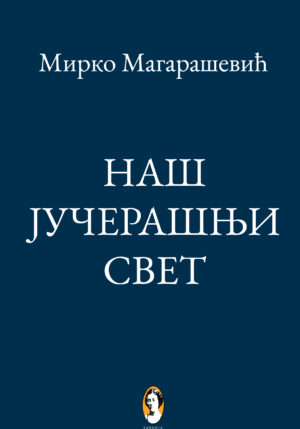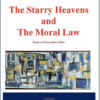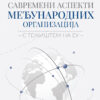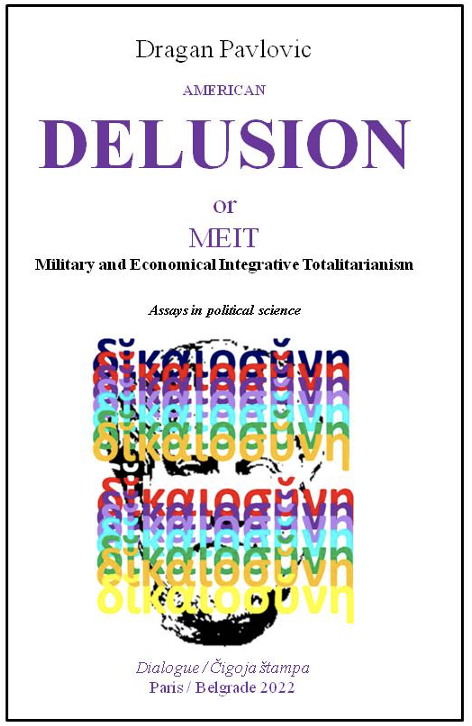American delusion or MEIT (Military and Economical Integrative Totalitarianism) : rise and fall of the western totalitarian ideology : assays in political science
1.287,00 RSD Originalna cena je bila: 1.287,00 RSD.1.029,00 RSDTrenutna cena je: 1.029,00 RSD.
| Autor | Dragan Pavlović |
| Broj strana | 232 |
| Format | 21 cm |
| Godina | 2022. |
| Pismo | Latinica |
| Povez | Broš |
The main claim in this book is that our so-called „moral position“ is determined largely by our concerns („Theory of concerns“, first chapter). The concept I am introducing is that people join together in communities also based on some special interests and concerns. This can sometimes lead to problems if the association around one or sometimes several common interests is misunderstood, that is, it implies some interests that were not the reason for the association. For example, political communities can sometimes imply more than the basic program for which the members initially agreed. Such are often some secret organizations, such as Freemasonry, and such was the political movement of fascism. I claim that the United States of America after 1918, and especially after 1945, set itself the goal of destroying every nuclear-too-powerful opponent, and then the specific destruction of Russia. Under the influence of that illusion, they founded the state community according to the corrected model of fascism, which diverted the course of the entire social life not only of Western society but more or less also of other parts of the world. This also resulted in almost a hundred proxy wars around the world in various forms and affected the entirety of Western culture and social life, from various extreme political and peace movements to various types of social revolts, from the Hippie movement to the Islamic State, to deviation in the politics of science and the entire culture and philosophy, including everyday life. Like in the classical fascist states, Democracy has been minimised and reduced to the presidential election or reduced to be used at the lowest levels of local unimportant issues. Important issues are decided by the expert teams and some rudimentary democracy is practised for the unimportant issues at the lowest local levels. As a solution, a permanent Russo-American conference is proposed.
I suggested in the previous essays that the conviction that Russia must be destroyed (RMD) is bad, because of its general deleterious effects and because the end effect will be catastrophic. Why should we (the US) still maintain such intentions and continue with the actions in that direction?
It looks quite obvious that we cannot decide to do something bad. We cannot decide to produce an action that we think is not to be produced, it should not be produced. It seems that we cannot decide to perform some action that will have a bad final result for us, even if such a result is remote. Why then should we be immoral or why should we be bad?
One of the reasons may be that our judgement (reasons of the US politicians and military or of diplomacy) was faulty because of either ignorance (Plato), lack of knowledge or lack of wisdom. The other is that our decision was akratic[1], that we acted on the account of the weakness of will, or the hedonistic pleasure of humiliating the adversary.
The intention, the only intention, is to destroy Russia as a nuclear power, and Serbia is getting in the way. The intention is a sick intention, born of ignorance, lack of wisdom and America’s vindictiveness. When we understand why Serbia is bothering us, we will also understand how the problem can be solved: by learning and bringing a democratic and just society to America. If the enlightenment of America is the method that must be applied, the problem remains how to do it, when in the Atlantic world it is considered that power also implies knowledge. This is where Europe must take on an enlightening role, as it has always done in the past. As it was with Hellenism, with the Renaissance, with the modern world in the 19th and 20th centuries, the world will be nuclear multipolar and a way must be found to survive in such a world. Old Europe is on the move again. Let’s enlighten America to save it.
[1] Aristotle, Nikomachean Ethics, ch 7.
| Autori | |
|---|---|
| Godina izdavanja | |
| Žanr |
Možda vam se svidi i...
Reforma javne uprave : ka novoj javnoj upravi : uporedni modeli
Ustavna demokracija za Bosnu i Hercegovinu
Čuvari zlatnog trougla : uticaj medija na poslehladnoratovsku spoljnu politiku SAD
Muhamed na isusovom krstu
POLITIČKA AKCIJA Romski pokret i promene
Višijevska Srbija
Hladni mir – Kavkaz i Kosovo
Noviteti
-
 3.000,00 RSD
3.000,00 RSD -

1.590,00 RSDOriginalna cena je bila: 1.590,00 RSD.1.300,00 RSDTrenutna cena je: 1.300,00 RSD. -

-

850,00 RSDOriginalna cena je bila: 850,00 RSD.680,00 RSDTrenutna cena je: 680,00 RSD. -

Rukopisna zbirka Jovana Frajta : fragment istorije instrumentalne gradske narodne muzike
2.310,00 RSDOriginalna cena je bila: 2.310,00 RSD.1.848,00 RSDTrenutna cena je: 1.848,00 RSD.
2.445,30 RSD Originalna cena je bila: 2.445,30 RSD.1.956,20 RSDTrenutna cena je: 1.956,20 RSD.


1.430,00 RSD Originalna cena je bila: 1.430,00 RSD.1.144,00 RSDTrenutna cena je: 1.144,00 RSD.







